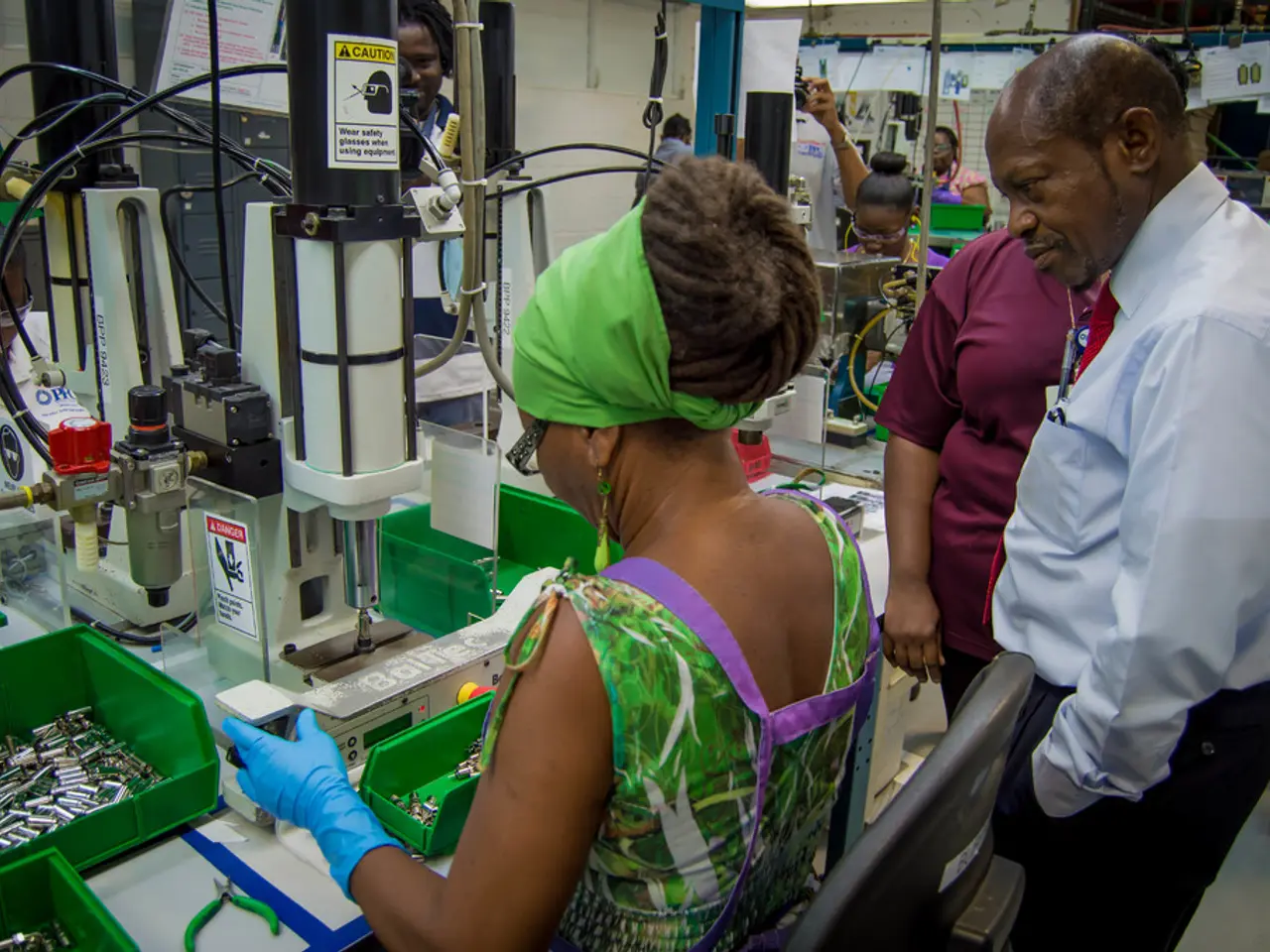Strategic approach for assembling a superior workforce in the realm of science and technology
Vietnam is taking a multi-pronged approach to attract and retain top experts in the science, technology, and innovation sectors, particularly in critical areas such as semiconductors, AI, and digital infrastructure.
Flexible Legal Frameworks and Incentives
The Vietnamese government has passed two key laws - the 2025 Law on Science, Technology and Innovation and the Law on Digital Technology Industry - which provide flexible compensation mechanisms and incentives to attract and empower Vietnamese experts from abroad and those in strategic fields like semiconductors and AI.
City-Level Policies
Cities like Da Nang offer additional incentives such as subsidies for high-skilled personnel, support for equipment procurement, training funds, and income policies that allow salary increases for key technical staff by up to 80% depending on performance.
Talent Development through Education and Training
Vietnam is investing significantly in education by expanding specialized semiconductor programs at universities and research institutes, establishing modern research centers and laboratories, and encouraging collaboration between academia and industry to provide practical training and internships.
Simplified Administrative and Visa Procedures
To facilitate international expertise inflow, Vietnam implements simplified visa procedures and housing support for international experts, as well as initiatives to encourage overseas Vietnamese professionals to return.
R&D Investment and Industry Collaboration
The government supports the establishment of R&D centers and joint research initiatives to develop core semiconductor technologies, accelerate innovation, and build domestic capacity. Collaboration with global players like Samsung, Intel, and TSMC is promoted by creating favorable business environments and dedicated industrial parks.
Human-Centered AI and Digital Infrastructure Development
The legal framework sets principles such as "human-centered" AI development and promotes essential digital infrastructure like AI data centers and centralized digital technology zones, with the State offering top-level support for AI research and deployment.
Financial Competitiveness and Administrative Efficiency
Despite these comprehensive policies, experts note that Vietnam’s financial incentives remain less competitive than those in developed countries. Detailed implementation of laws needs to be streamlined with related regulations such as the State Budget and Public Officials laws to maximize impact.
Attracting Top-Tier Talent
The Ministry of Science and Technology (MoST) is designing tailored incentives to draw in overseas experts and international experts, including attractive financial packages and improving working conditions. Proposed incentives for chief engineers and chief architects include salaries on par with ministerial ranks, performance-based bonuses, tax exemptions, housing support, and family benefits.
The Way Forward
A national project on developing and deploying a highly skilled workforce is expected to be submitted to the Government by September. Investments will continue in upgrading laboratories and research facilities and building high-tech parks and start-up incubators. The success of these efforts hinges not only on financial or legal frameworks but also on the creation of a vibrant scientific environment that encourages creativity, rewards results, and embraces global collaboration.
[1] Nguyen, H. (2021). Vietnam's New Law on Digital Technology Industry: Implications for the Semiconductor Industry. Vietnam Briefing.
[2] Le, T. (2021). Vietnam's New Law on Science, Technology and Innovation: What You Need to Know. Vietnam Briefing.
[3] Pham, T. (2021). Da Nang's Incentives for High-Skilled Personnel: A Boost for the City's Development. Vietnam Briefing.
[4] Tran, L. (2021). Vietnam's Semiconductor Industry: Opportunities and Challenges. Vietnam Briefing.
[5] Nguyen, T. (2021). Vietnam's Legal Framework for AI Development: Principles and Regulations. Vietnam Briefing.
- In a bid to attract top experts in the science, technology, and innovation sectors, Vietnam's government has passed laws relating to science, technology, and innovation, as well as digital technology, offering flexible compensation mechanisms and incentives.
- Cities like Da Nang add to these incentives with subsidies for high-skilled personnel, support for equipment procurement, training funds, and income policies that allow salary increases for key technical staff.
- To foster talent development, Vietnam is investing in education, expanding specialized semiconductor programs, establishing modern research centers, laboratories, and promoting collaboration between academia and industry.
- Vietnam simplifies administrative and visa procedures and offers housing support for international experts, encouraging overseas Vietnamese professionals to return.
- The government supports the establishment of R&D centers, joint research initiatives, and industry collaborations with global players like Samsung, Intel, and TSMC, focusing on core semiconductor technologies, innovation, and building domestic capacity.
- The legal framework emphasizes "human-centered" AI development and promotes digital infrastructure like AI data centers and centralized digital technology zones with State support for AI research and deployment.
- Despite comprehensive policies, financial incentives in Vietnam are less competitive than in developed countries, requiring streamlining of law implementation with related regulations for optimal impact.
- To attract top-tier talent, the Ministry of Science and Technology proposes tailored incentives for overseas experts and international experts, including attractive financial packages, performance-based bonuses, tax exemptions, housing support, and family benefits. The key to success lies not only in financial or legal frameworks but also in creating a vibrant scientific environment that encourages creativity, rewards results, and embraces global collaboration.




